Student Blog
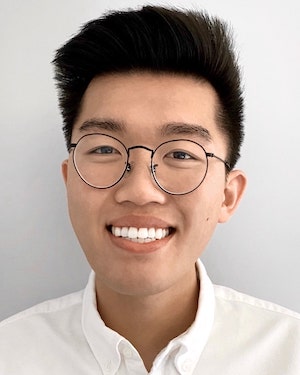
Calvin’s Declassified Chan Division Survival Guide ⟩
July 10, 2020, by Calvin
As much as I’ve been enjoying my time spent in grad school so far, I confess that there have been, and definitely still are, moments when I struggle to keep up. Back when I had just started the program, I felt a daunting amount of pressure to be that student who had good grades, who was getting involved, and so on. I didn’t want my peers to think that I was falling behind or that I wasn’t as passionate as them. I had put up a front as if everything in my life was balancing out perfectly. In reality, though, all of my self-doubt and imposter feelings had knocked me down to a low point where I felt undeserving of being here.
I needed to pause and reflect in order to understand why I was experiencing these feelings. As I collected my thoughts, I realized that my reasons weren’t aligned with my values. I associated an “A” grade with the incentive of validation and I connected heavy involvement as the only method of gaining opportunities. However, the truth of the matter is that I don’t need to be reaffirmed by letter grades to know that I’ve worked hard, and there are multiple avenues to finding opportunities and getting involved. We’re all here to become occupational scientists and occupational therapists! How we get there is up to us, so let’s live our lives to our fullest!
I wish I had guidance on this earlier on, so I want to provide some tips and reminders that I think will help with treading the waters of graduate school:
Your health comes first:
- Being a student means keeping ourselves academically accountable, but we should also be prioritizing our wellness. I’ve found that setting boundaries and understanding my own mental and physical capacities have enabled me to excel in so many ways!
Get involved for you:
- Last week, I co-presented at the Student Organization Fair on behalf of the Occupational Therapy and Science Council (OTSC). During the Q&A portion, first-year students expressed their concerns about getting involved in terms of time management, overcommitment, and staying on top of school. In response, we second-year students, along with Dr. Rafeedie, echoed sentiments of doing what you can and how your experiences are what you make of it. However you choose to get involved will ultimately help you and respective organizations move forward in leadership!
It’s okay to say “no”:
- You may feel like turning down opportunities will hurt your chances of getting more in the future, but really, sometimes we just have to say “no”. There are moments when I feel so overwhelmed and unsure about taking on more responsibilities, that saying “yes” may only exacerbate the outcome. By giving myself options, I’ve become a more effective communicator and a better manager of my time.
Reach out and check in:
- Now more than ever, getting in touch with peers, faculty, and staff, has proven to be an essential aspect of my life. Feeling sensitive, vulnerable, and in need of support, is natural. When I allow myself to open up, I feel a sense of relief and find that others may even connect with my feelings on a mutual level.
You don’t have to have all the answers:
- As a second-year student, I’ve been feeling the pressure of having to provide the best responses to questions that come my way. Realistically though, I don’t know everything, and that’s okay. There is beauty in not knowing and even more so in the adventure of learning and being curious!
Embrace your qualities:
- I am a huge overthinker! I had always seen this as a weakness, but more recently, I’ve redefined it into a quality that I cherish. Now, I see it more like thinking thoughtfully and putting in the effort to understand. We all have our own unique set of qualities, so let’s appreciate and celebrate them!
Be real with yourself:
- I used to be such a people pleaser, but I realized that I can’t give everyone what they want. It’s still hard, but being more realistic with myself has helped me cope with my struggles and it’s reminded me that I should be doing things for me. Stay true to yourself because you are the only you and no one else knows you better than you do!
This journey of self-discovery is never-ending. I’m growing and learning more about myself every day and, although graduate school can get tough at times, it has taught me valuable lessons that I will carry on throughout life. So, to all of you prospective students, current students, and anyone else: we are in this together and you are not alone!
⋯
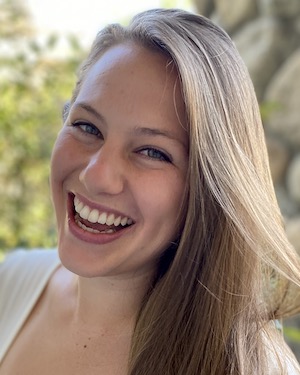
Why I Decided to Run a Half Marathon ⟩
July 9, 2020, by Savi
Life Hacks School/Life Balance
Making time for something other than work during graduate school can seem like a daunting task. Your days are filled with classes, exams, projects, essays, and more. I quickly found myself stuck in an unhealthy routine of going to class all day, driving directly to work, eating late at night, and staying up late to finish assignments and readings. After transitioning to studying and working from home, I found myself not only justifying my lack of self-care engagement to myself but also my extremely caring and somewhat concerned roommates. Although I had gained more time because I no longer had to commute, I continued to convince myself that wasting time on non-school or work-related endeavors was lazy and not worthwhile. After a few weeks of using this mentality, I gradually noticed my productivity declining and my energy depleting. As occupational therapists, we are supposed to help our clients engage in adequate self-care in order to live a more balanced, healthy, and productive lifestyle. I, therefore, knew deep down that it was time to make a change! I needed to enjoy my daily occupations and find ways to feel accomplished and energized once again, so I decided to train for a half marathon.
This was a practical decision for me, but it was not an easy one. To say it bluntly, I do not like running. I know what you might be wondering . . . why would you voluntarily decide to run a half marathon then Savi? Great question! I needed to change my tiring routine and add in an occupation that would increase my energy and productivity. As Dr. Laura Cox and Dr. Kelcie Kadowaki taught me in our OT 534: Health Promotion and Wellness course this semester, physical activity can promote psychological wellbeing, elevate cognitive functioning, and enhance self-esteem. In hopes of improving my overall wellbeing, I decided to listen to my professors’ advice and embark on a journey that I wasn’t initially enthusiastic about.
I created a strict training schedule and I sought out the advice of my friends who had already run a few half marathons. If I’m being completely honest, the first four runs were tough. I was out of shape and I was still in the mindset that training was taking time away from my studying. By the end of the second week, I had become so used to integrating the runs into my schedule that I would immediately stand up after class to go put on my running gear. My runs became easier and they allowed me more time to step away from my computer, breathe some fresh air, and listen to good music. Every time I came back home I felt as though I had more energy to engage in schoolwork and even socialize with my roommates during dinner. Checking the run off of my to-do list gave me a sense of accomplishment and increased my motivation to tackle the next item on my list. I found myself counting down the minutes before I could go on my run in order to increase my self-esteem and drive.
Many of you reading this currently work or want to work in the healthcare field and are, therefore, laughing at this epiphany of mine. You may be saying to yourself . . . well of course you are feeling this way! Exercise has proven to have many physiological and psychological health benefits. My response is that you are right! Although I knew the benefits all along, I had trouble finding a way to integrate it into my hectic lifestyle. I soon came to realize, though, that by adding this time for self-care, I was even more productive than before. I felt more confident in my ability to succeed academically, and I was more excited to engage in all my other occupations. So to those who need to hear it: Self-care is important and should not be left out of your schedule due to time constraints. The time you spend working on yourself allows you to tackle any obstacle in your way with more confidence and enthusiasm, so find the occupation that reminds you how strong, hard-working, and successful you truly are. Take the leap and “run that half-marathon” because I promise that you won’t regret it. I’ll meet you at the finish line!
⋯
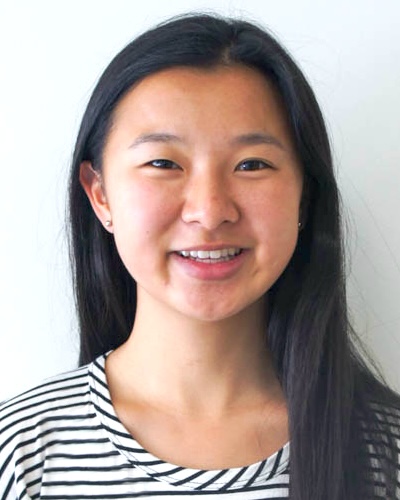
Try Everything: Selecting Electives ⟩
July 8, 2020, by Bethany
Due to the pandemic and recommendations for social distancing, our summer classes have put us ahead of schedule in terms of coursework. So when I went to go check my email the other day, I found a message about picking electives for the Fall semester. I was both overwhelmed and nervous, but thankfully, the email also mentioned a Zoom information meeting to help us learn more about our options and what Fall is going to look like.
The electives have been something I have been looking forward to in this program for a long time. A lot of the Master’s coursework follows different practice immersions and thread courses throughout a specific course sequence designed to let us get a taste of OT in all of its forms. After those first semesters, we get to choose from a variety of electives for us to consider, either to specialize or to broaden our scope of knowledge further.
I had come into this program very interested in hand therapy, since it was one of my first experiences with OT. I also had the chance to volunteer under the same hand therapist later during my undergraduate career. For next semester, there were two courses related to hand therapy, OT 573: Hand Rehabilitation and OT 562: Advance Practice in Hand Therapy and Physical Agent Modalities. Hand therapy had always been a consideration, but now, after going through two of the Division’s immersions, I am considering other possibilities as well.
I was excited to be in Adult Physical Rehabilitation as my first immersion. I wanted to see more hand therapy, but then even just starting the immersion, I was able to experience the ways in which Rehab applies to so much more: transfers after hip replacements, creating memory devices, or even relearning the use of a limb after a stroke. At my fieldwork site, I was lucky to be able to experience interdisciplinary work, looking at how occupational therapists work with experts in other fields. In observing an interdisciplinary group for a wheelchair consultation, I began to understand the unique perspective that OT has to offer to complement the views of a physician, a physical therapist, and nurse.
I had been wary of the Mental Health immersion. Being a type A person, I had expected to be most drawn to the Adult Physical Rehab process of having certain activities tied to certain physical outcomes. I was at first almost scared by the seeming vastness and uncertainty of Mental Health. Instead, I found myself intrigued by the power of conversation and by the power of activity. I ran groups at my fieldwork site, engaging people not just through words but also in actions, through activities like a music group, origami, and activities engaging the senses. I fell in love with occupational therapy all over again, amazed by the power of doing, how activity does not just impact the physical, but mental aspects as well. I had expected the immersions to help me narrow down which field I wanted to be in; however, I feel like my choices are only expanding.
And now, I am very much looking forward to the Pediatrics immersion. I expect myself to come into the immersion with a more open mind. Though, I am worried that I will come away from the immersion with my mind open to even more possibilities than I am already considering.
The electives open to us for the Fall were numerous and varied, covering topics from Lifestyle Redesign to ergonomics to dysphagia and swallowing. I realized that I do not have to take courses only focusing on hand therapy if I do not want to. I’ve decided this Fall that instead of taking two hand courses, I will instead take a few others to diversify my course load. In addition to OT 573, I have requested clearance for OT 563: Occupational Therapy in Primary Healthcare Environments and OT 566: Healthcare Communication with Spanish-Speaking Clients. I’m excited to see how these different courses will prepare me to be a better clinician in the future!
⋯
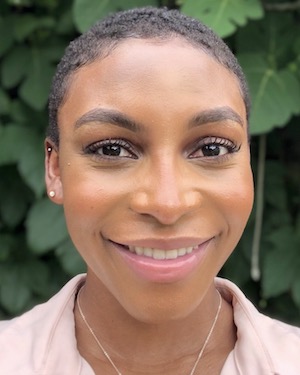
Defeating the Feelings of Inadequacy and Non-belonging ⟩
July 2, 2020, by Lamoni
Yesterday, I presented at the student organization fair to give students some information about COTAD. When we, the presenters, were introduced, Dr. Rafeedie referred to us as “second year students.” I am still shocked every time that I hear that phrase. It has already been a full year of graduate school. Am I really half-way done? This question made me think about how I got to this point and all of the feelings of inadequacy that I had to tackle along the way.
The doubts started when I first began my pursuit of higher education. Before my first day of college, I was eager to attend a highly ranked school. I wanted to be challenged. But when I arrived, I was challenged in more ways than one. No one there looked like me. The number of Black students was roughly 5%. And of those Black students, even less were African American. And of those African Americans, few came from low socioeconomic backgrounds. Naturally, I felt out of place due to my race, ethnicity, and income. Along with sharing a class with people from some of the best private high schools in America, I recall questioning my belonging at least several times a week. I do not remember telling anyone about these feelings. My best friend in college was Black but she was not African American and her education was completely paid for by her family. My college was private and very expensive by the way. So, I did not think she would understand. I thought about calling my best friend from high school but she decided not to attend college and was starting a family. She would not understand either. Instead, I pushed those thoughts deep down inside and trucked along. When I graduated, it was the biggest accomplishment of my life. I was so proud! My family was proud! My community was proud!
After college, I knew that I wanted to become an occupational therapist. That, of course, meant going to graduate school. Like I did for college, I traveled across the nation to attend graduate school. I had no family or friends with me. I was starting anew. However, I had already done this once. It would be easier this time. Not so much. Very quickly, the feelings of inadequacy came back. As I walked down the hallways of Chan, I saw portraits of influential women in occupational therapy. Not one portrait was of a Black woman. When we entered the large G37 lecture room, I continued my search for other people that looked like me. I found two. As a class of 144 people, this meant that Black students made up 2%. Truthfully, it was not surprising. Though half of African Americans attend college, according to the National Black Occupational Therapy Caucus, only half of that percentage graduates. According to AOTA’s workforce data from 2014, the percentage of Black occupational therapists is only 4%. With these statistics, it began to feel like this was not the right place for me. But there was a turning point.
During our first summer of the program, we had the honor of receiving a lecture from Dr. Lela Llorens. At our lecture, she spoke about her challenges as a Black occupational therapist and her own feelings of non-belonging. Without knowing, she validated my emotions. Despite her feelings of estrangement, Dr. Llorens greatly influenced our profession’s body of knowledge. In 1969, she received the Eleanor Clarke Slagle Lectureship award — one of the greatest recognitions an occupational therapist can obtain. Additionally, in celebration of occupational therapy’s 100 year history, Dr. Llorens was recognized in AOTA’s list of 100 influential People. Hearing about her achievements dismantled all of my negative thoughts. I have come this far, and I will keep going. Maybe this place was not originally designed for me but there is space for me now. There is space here for others like me, too.
Here are my suggestions for when you feel like you are inadequate or do not belong:
You have jumped over hurdles and navigated barriers time and time again. That is no easy feat! Whether you are just now entering college, finishing college, starting your masters, or completing your OTD, your accomplishments thus far show that you are capable.
When there is already a feeling of non-belonging, it is easy to focus on the negatives. It can send you into a spiral of emphasizing your “failures.” Instead, view everything as a learning tool. If it did not work in the past, what can you do differently? And if it did work, celebrate! Reward yourself! Break the cycle of dismissing validation.
Create a detailed image that affirms your desired outcomes. See the bigger picture. When we have a concrete idea of what we are working toward, we stay motivated. Small rocks in our path may make us stumble but never fall. Do not lose sight of the ultimate goal.
Just like I belong here, so do you.
⋯
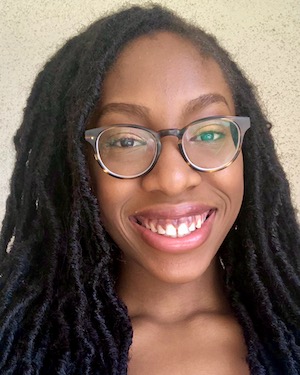
My Freshman Year Experience at USC ⟩
July 1, 2020, by Nmachi
As of May 2020, I officially completed my first year at USC! I can truly say that the past year of living on campus has taught me a variety of things- positive and negative. My time as a freshman was so impactful for so many reasons. For one, I was able to meet and interact with people who would soon become like family, I achieved a new level of independence that I never had before, and I started the process of frequent inward thinking and learning more about who I am as an individual and what I desire to become.
I feel like the best place to start when discussing the highlights of my freshman year experience would be the place I called home on campus: Somerville Place. Somerville is a special-interest floor in the dorm building Fluor Tower (main campus); the floor houses freshmen who identify as Black and creates a safe space for them to bond and create lasting relationships. Applying to live on Somerville was, hands-down, the best decision I made during my senior year of high school (aside from applying to USC of course!). Since being involved in the Black community on campus is very important to me, I knew that I needed to put myself in the position to engage with my community everyday. Living with the students I met on Somerville was so fulfilling and freeing because I never had to worry about conforming or changing who I was in any way; I could just be my truest self.
Another highlight from my experience on campus would have to be the overall fun that comes along with attending a school like USC. Going to tailgates and Saturday football games with friends was an experience that I plan to continue to cherish through my career at USC.
On a more academic note, I definitely learned a lot from my experiences with classes. Registering for classes and deciding what you would be interested in was a process that I had to get used to. In terms of attending classes and workload, I think that I was fairly prepared because of how my high school instructed their curriculum. Despite having great preparation, I still found myself struggling with balancing academics and social life, especially because I was literally living with all of my friends on one floor. As time went on throughout both semesters, I began to create my own method of balancing everything in my life in a healthy way.
To all of those who might be seniors in high school and are wondering how life as a college freshman will be, I want to make it clear that every single person will have a different experience. My biggest recommendation is to make the most out of your time as a freshman. Freshman year is the time to discover things that make you happy and that you may want to pursue alongside your career. Make sure to try new things because you’ll probably pick up new hobbies and passions by doing so. Last but not least, take care of yourself by whatever means necessary. As a perfectionist, I tend to stress myself out with getting the best grades and accomplishing the most that I can. It is great to have a drive and to desire success, but it is just as crucial (or even more so) to focus on your physical and mental health.
With that being said, I am beyond grateful to have had the freshman year experience that I did, and am very excited to continue my journey at USC. Fight on! <3
⋯





